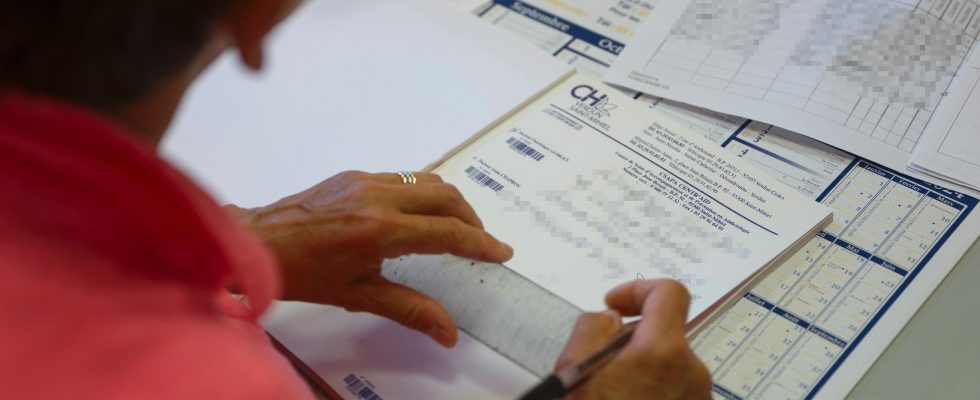Anger grows as exasperation grows among liberal doctors. All the unions representing the profession are calling for a new renewable strike starting this Friday, October 13 with the aim of “giving a strong signal to the public authorities”. And although no demonstrations are planned, the French must expect a “Black Friday”, warn the unions.
“All consultation activities, technical acts, are deprogrammed”, “all emergencies will be transferred to the public hospital”, and the guards “arrested”, detailed the president of the Bloc (surgeons’ union) Philippe Cuq, designated spokesperson for a brand new “inter-union” which brings together 12 representative organizations of doctors. For this vascular surgeon, there is no doubt, “the mobilization will go far beyond just unionized doctors” who represent “around 10%” of the total number of 82,000 private doctors. Unprecedented union unity.
Valletoux law, a red line for liberal doctors
It must be said that for several months, two points of friction have crystallized most of the tensions between government and private doctors. The Valletoux law, a real red line for unions which will be discussed in the Senate from October 24; and the “urgent” reopening of conventional negotiations with Health Insurance.
Voted by deputies last June, this bill aims, according to its author Frédéric Valletoux (Horizons), to “improve access to care” through a “territorial commitment of professionals”. In other words, private doctors will have to work night and weekend shifts in order to relieve the burden on the public hospital. Enough to arouse the ire of unions, who are also worried about the additional administrative burdens that would result from its application. In a column published at the end of May in The worldthe association Doctor for tomorrow denounces a text “which will add administrative burden to a sector which is already drowning in procedures”.
Between 30 and 50 euros charged for a basic consultation
At the same time, eight months after the failure of a first attempt at price negotiations with social security, the unions wish to prepare the ground for the next round of discussions, which should be held in the coming weeks. In any case, this is what the new Minister of Health Aurélien Rousseau promised this Wednesday, October 11, announcing that Social Security would “renew very quickly” dialogue with liberal doctors.
Especially since the last revaluation of 1.50 euros was experienced as a real “affront” by the profession. “The government does not compensate for inflation and accepts that the income of general practitioners will fall,” reacted this winter to L’Express Agnès Giannotti, president of MG France, the majority union of general practitioners.
Effective from November 1, this increase brings the price of a basic consultation to 26.50 euros. An amount well below the expectations of the unions, who have been pleading since the start of the year for prices varying from 30 euros for the most moderate, to 50 euros for others like the UFML. “What doctors are demanding at 30 euros is not absurd,” admitted former Minister of Health François Braun last February, on the eve of the opening of negotiations. A position whose continuity seems to be ensured by his successor Aurélien Rousseau, who conceded at the beginning of September that the consultation at 26.50 euros was “only a passage, not an arrival point”.
A crisis of attractiveness
However, despite some favorable signals, the inter-union criticizes the executive for wanting to condition the increase in the price of consultations on “commitments” serving the objectives that it has set for itself. Helping the French find a treating doctor, or even curbing the increase in medication consumption, for example. New expectations which, according to the unions, risk dealing a new blow to the crisis of attractiveness from which the profession is suffering.
Since 2010, the number of doctors with exclusively liberal status has fallen by 11.8%, while that of salaried doctors has increased by 13.4% over the same period. “We must stop discouraging young people from settling down,” argues Mélanie Rica-Henry, president of the Médecins Pour Demain collective and member of the inter-union association. If doctors demand an increase in the value of their consultation, “it is not to increase what we earn, it is to be able to hire” in order to delegate administrative matters. And to devote themselves only to what only they know how to do: care.
